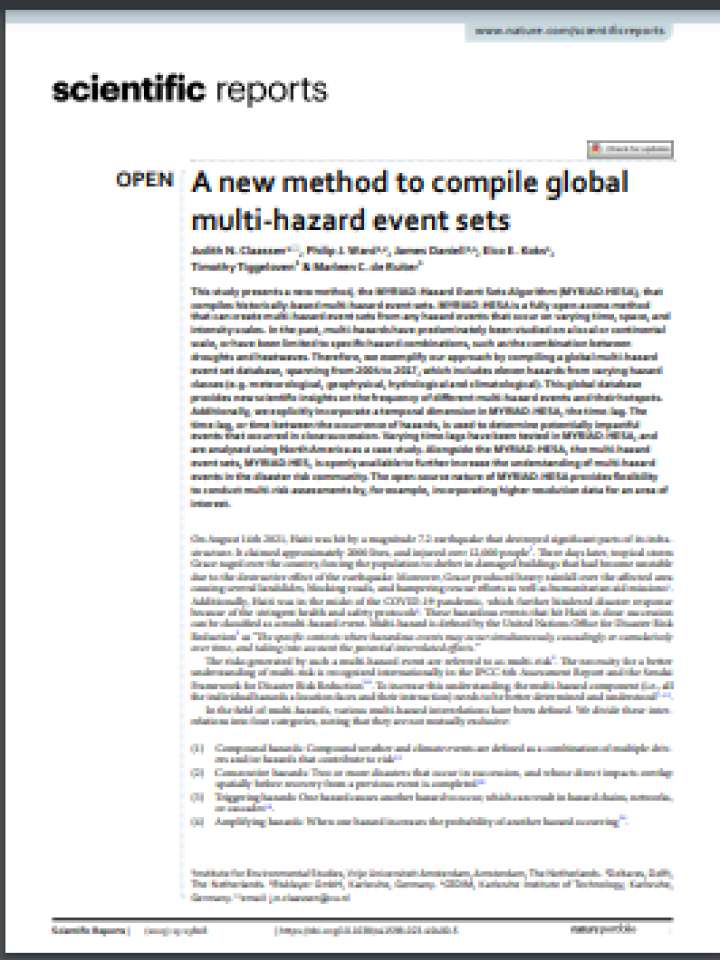A new method to compile global multi-hazard event sets
This study presents a new method, the MYRIAD-Hazard Event Sets Algorithm (MYRIAD-HESA), that compiles historically-based multi-hazard event sets. MYRIAD-HESA is a fully open-access method that can create multi-hazard event sets from any hazard events that occur on varying time, space, and intensity scales. In the past, multi-hazards have predominately been studied on a local or continental scale, or have been limited to specific hazard combinations, such as the combination between droughts and heatwaves.
MYRIAD-HES is presented to identify global hotspots of hazard pairs, which hazard pair occurs most frequently in different regions, and unique multi-hazard groups with and without time-lag. The most frequent hazard pair globally is the combination between heatwaves and droughts. However, most of the global hotspots, such as Madagascar, Florida, North Australia, Bangladesh, Japan and the Philippines, are largely dominated by tropical cyclone activity and resulting secondary hazards, such as floods and landslides. The hazard groups resulting from the hazard pairs can be very complex, as large numbers of variations are possible.
Explore further

